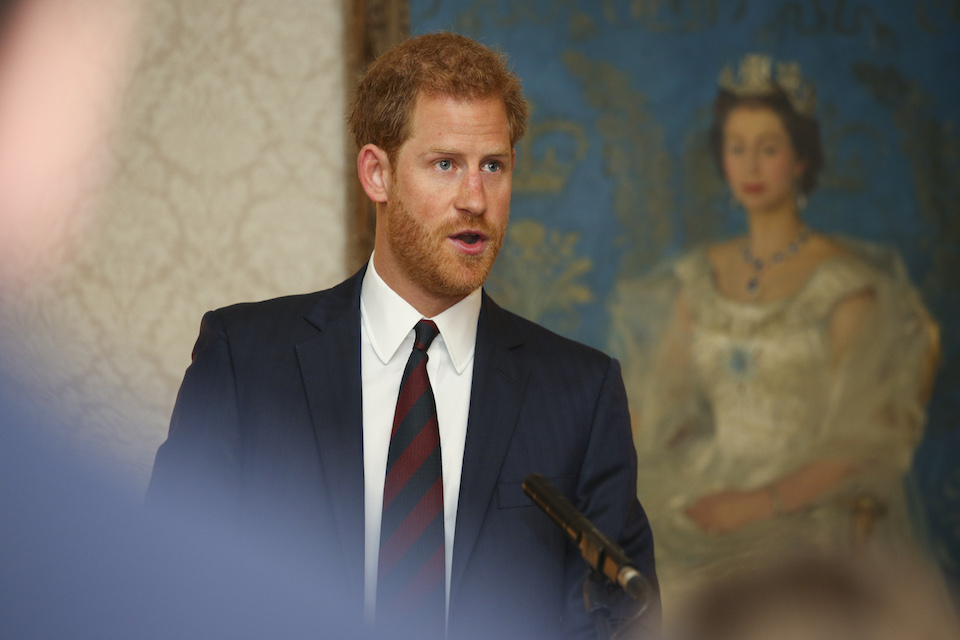Speech: Employer Recognition Scheme Awards
I’m delighted to be here and it’s a great honour to have Prince Harry joining us fresh from a triumphant Invictus Games and from raising awareness of mental health issues in the Armed Forces earlier today.
We are, Your Royal Highness, incredibly fortunate to have someone with such immense energy and enthusiasm working on our Armed Forces’ behalf.
It’s also a privilege to meet in this iconic museum, currently celebrating its centenary. If you get the chance, wander the halls.
There you’ll find our national story documented in deeds of outstanding courage from Gallipoli and the Battle of Britain, to our exploits in the Atlantic during the Cold War.
Among the modern day exhibits you’ll find extraordinarily mementos of sheer courage such as Johnson Beharry’s Victoria Cross, the first Victoria Cross awarded in the 21st century, to a soldier who twice survived hits by rocket propelled grenades who despite his own injuries and showing complete disregard for his own safety then saved his comrades from the fire.
Today, as Your Royal Highness knows, our forces are serving on operations in more than 25 countries.
They’re helping fragile democracies from Afghanistan to Iraq, supporting peacekeeping in Somalia and South Sudan, and leading in NATO with troops in Estonia and Poland. Our planes protecting the Black Sea Skies, and our ships of the Royal Navy leading NATO’s maritime task groups.
No praise can be high enough for them. Nor for those who go out of their way to support them.
So today whether you hail from the public or private sector whether you’re in a business employing fewer than 10 people or more than 500 people, I’d like to thank you all.
First, for supporting our Reserves. For giving those civic minded citizens more than flexibility to train or to go on deployment but for giving them also encouragement and recognition. It is your support has enabled us to increase our Reserve numbers by 1,280 up almost 4 per cent since last year with our total trained and untrained strength now standing at 36,580.
Second, I want to thank you for what you’re doing for our veterans. Laing O Rourke and Build Force are attracting service leavers into the building trade. North West Ambulance Service, one of four blue light organisations to scoop gold, is helping veterans retrain as ambulance drivers.
Transport for London and Airbus are offering placements to wounded, injured and sick soldiers. And Combat pest control a small business that doesn’t just free homes from household menaces but provides assistance to children from Afghanistan to Africa is a workforce entirely composed of veterans.
Thirdly, thank you for the help you’re giving to our wider Armed Forces families.
Sodexo is actively welcoming military spouses into its workforce, allowing spouses to transfer to different sites when their partners are deployed or posted elsewhere. X-forces are helping veterans and their partners into work.
And Manpower are giving free employability sessions to spouses living on Salisbury Plain.
Yet those efforts, for our reserves, our veterans, our families don’t account for why the people in this hall now hold gold.
The reason you’re listed among our elite 80 employers is because you’re also superb advocates leading by example showing that employing Reservists and veterans simply makes business sense.
We have here amongst us Corporal Ian Taylor. A systems integration and test engineer for General Dynamics. His Royal Highness will know him well.
He’s just back from the Invictus Games in Toronto, where he not only competed in swimming, powerlifting and rowing, he not only set a personal best, but won silver in the breast stroke.
Who wouldn’t want to employ someone with such grit and guts, determination and drive in their company too?
Your collective efforts have encouraged more and more companies to commit to the Armed Forces Covenant.
Today we have more than 1900 companies that have signed up – and we are on track to hit 2000 soon.
Back in 1920 at the official opening of Imperial War Museum its founder Sir Alfred Mond declared the museum would not be a “monument of military glory, but a record of toil and sacrifice” wherein all would find “an example or illustration of the sacrifice he or she made”.
So today, alongside sacrifice we record the service of great employers. As years to come, as the threats against us intensify, we will increasingly look to our wider Armed Forces family to help us manage all those demands and pressures.
But with your example, inspiring the businesses of the future to follow in your footsteps, I am very confident that our Armed Forces family will continue to thrive.

